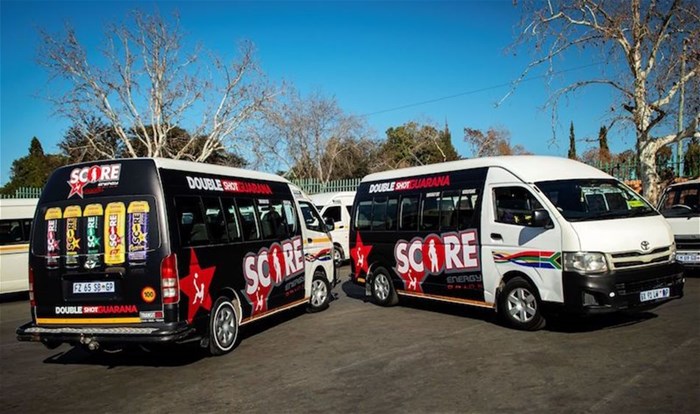
Top stories






More news


Marketing & Media
Ads are coming to AI. Does that really have to be such a bad thing?














My concern is, however, that most South Africans do not fully appreciate the scale and importance of this industry coupled with the enormous communication and commercial opportunities it presents. The opportunity to partner and create mutually beneficial partnerships with the taxi industry can create significant value. Taxi advertising is one example of just such a partnership.
As the recent looting and riots showed very clearly, minibus taxi associations are a powerful force to be reckoned with, and an integral part of their communities. Over the past week I’ve seen more than one image of taxis lined up protectively outside malls and read several statements by various taxi associations standing up against the riots and looting. No-one could dismiss their power and influence.
Once a mushrooming, informal and often disorganised grouping of entrepreneurs, today the industry is increasingly structured, with 250,000 registered taxis on South African roads. These serve as the primary transport mode for most of South Africa, running 15 million commuter trips per day – that’s 75% of all daily transportation. Both bus and train services rely on the minibus taxi infrastructure.
The taxi industry transports the bulk of South Africa’s consumer base and offers communities mobility and flexibility, and it does so without receiving a subsidy from our government.
This is an industry solely made up of 100% black-owned businesses (21% of which are owned by women), and are responsible for the creation of around 960,000 direct and indirect jobs. It’s an avenue (arguably one of few) through which otherwise financially excluded individuals can set themselves up as entrepreneurs. All of which has led to substantial business investment. Take, for example SA Taxi, part of the Transaction Capital group of companies, which finances and insures taxis.
It’s time that more South Africans recognise just how vital taxis are, both to the people they serve and the local economy, as well as how far this industry has come over the years. Moreover, I think it’s important to consider the value that partnering with this sector can have in influencing the taxi industry in positive ways, especially as far as safety, law-abiding behaviour and public image are concerned.
At Transit Ads, we have worked very closely with the taxi Industry for the last 13 years and invest approximately R5 million per annum to the industry. Taxi branding is, I believe, one of our most important products, because unlike a billboard, TV or radio, it’s a medium that is in your face – it’s almost impossible to switch it off. It builds and reinforces brands and delivers unparalleled frequency.
As taxis follow strictly enforced routes, we can target just who our branding reaches, and within the densely populated taxi ranks, we can drive home our clients’ advertisers using digital media such as Transit TV and Transit XL. Through all of this, we can reach massive audiences, and there are very few advertising mediums that consistently expose consumers to advertising messaging in their communities as Taxi Advertising does.
All of this makes the sector a hugely valuable one for us and in turn, our clients. In return, we offer taxi owners, their drivers and associations access to an additional stream of revenue, one which depends on good driver behaviour and vehicle maintenance.
Our approach has been to build relationships and create a meaningful value chain within the industry. To foster good driver behaviour, we established a rewards programme in partnership with the taxi association, owners, and drivers. (People think the taxi industry is very informal, but it’s not – between taxi associations, affiliates, taxi owners and drivers, there is a corporate hierarchy to deal with, therefore building support for taxi branding requires a lot of consultation).
We’ve also implemented a system where complaints from the public could mean that a taxi is stripped of its branding and replaced, to ensure that the client’s brand reputation remains intact. This serves as a substantial incentive for good driving.
In addition, we have 16 rank ambassadors stationed in key ranks where we do our branding, who carry out daily inspections of branded taxis. If a taxi has been dented or scratched or the branding damaged, this needs to be fixed within 3 days of us being informed of it.
Throughout this process, we’ve made a concerted effort to ensure that our operations create a value chain across the industry, so that, for example, our products – vinyls, applicators, etc. – are all sourced from within the taxi industry. It’s important to us that we foster and maintain those relationships.
So, over the past years our focus has been on creating a medium that is cost-effective, manageable, and creates impact and reach for clients. In doing so, we’ve ramped up our operational infrastructure, to ensure that we address these concerns and deliver a superior product.
We depend on the minibus taxi industry as a platform for our advertising medium, and the owners and drivers, in turn, benefit from the income we generate. But, insofar as this partnership leads to safer driving and better vehicles, the ultimate winner is arguably those who use these taxis – the people who travel to and from school, their workplace, and the shops every day. Everyone benefits.